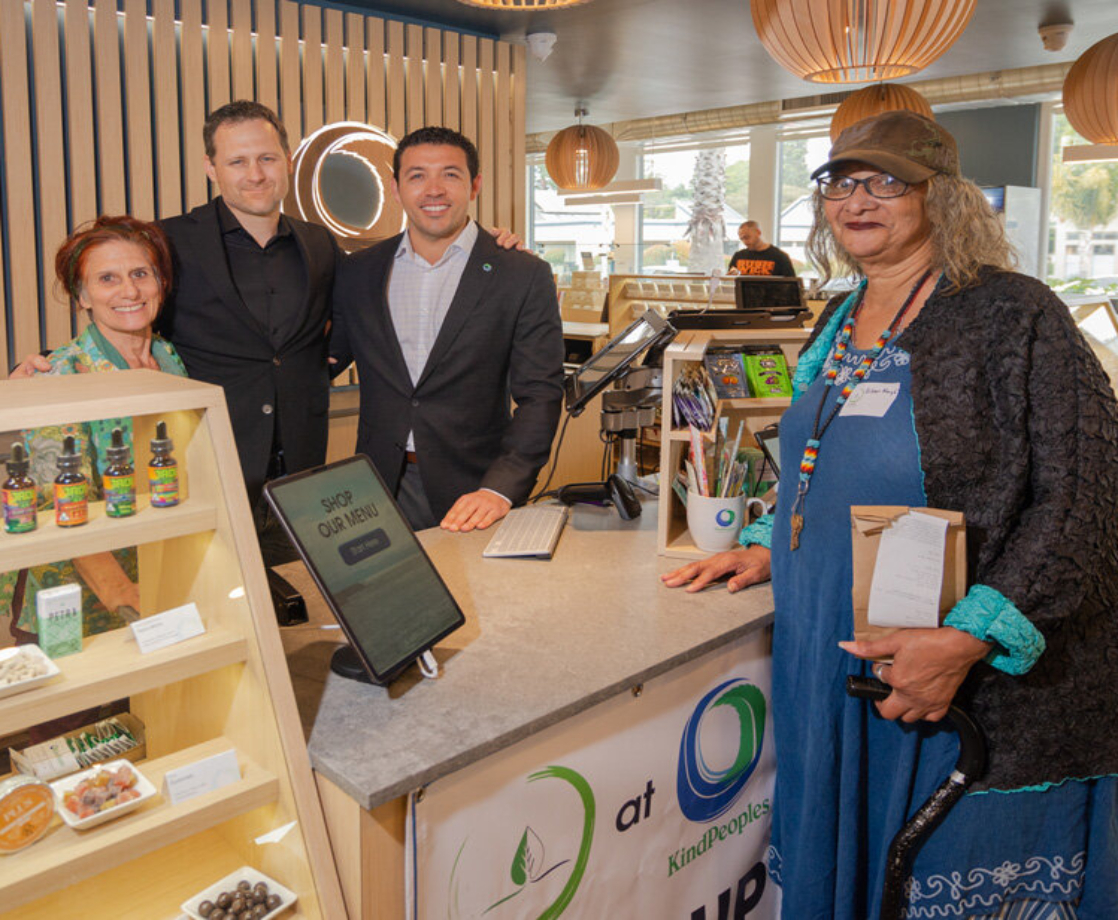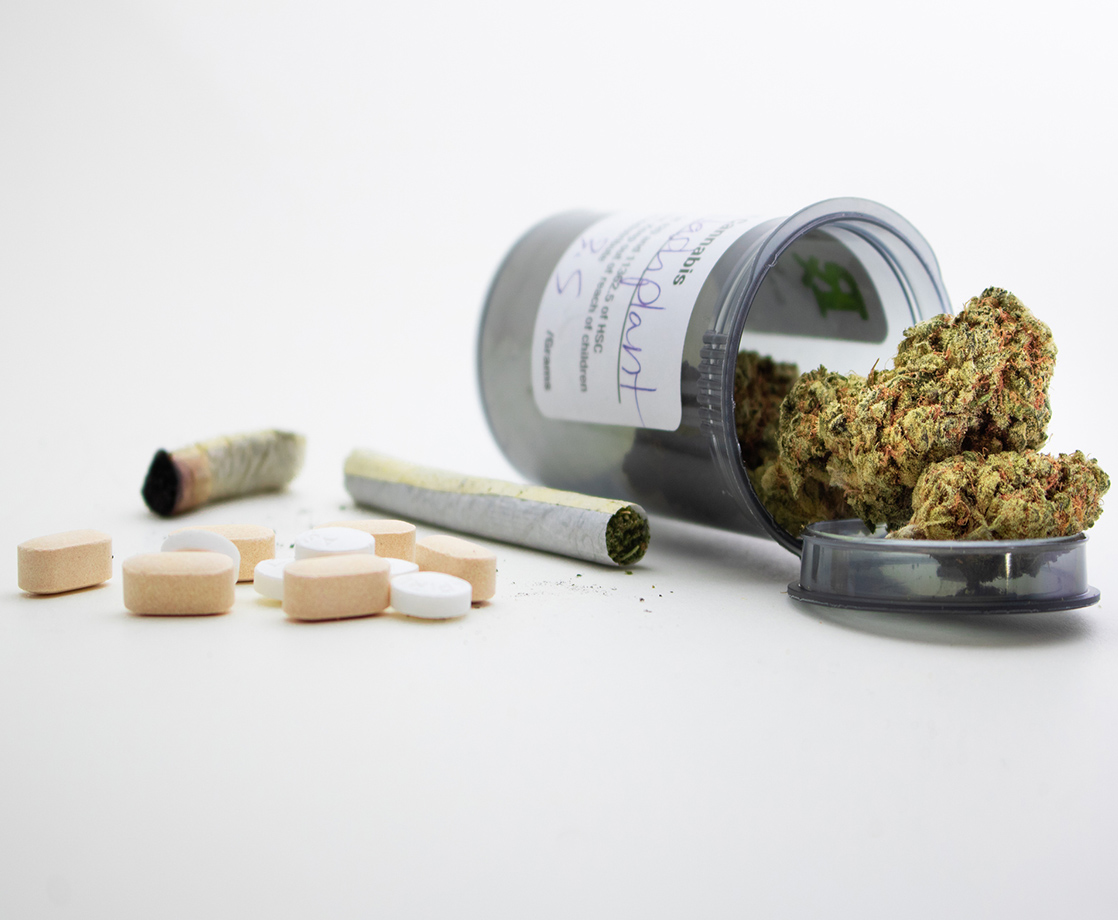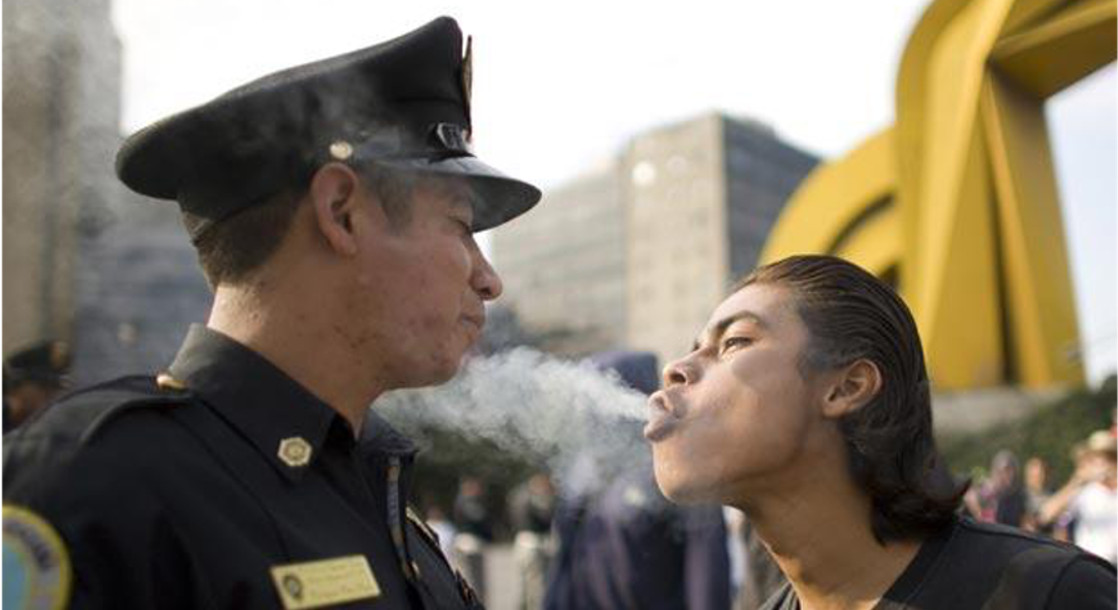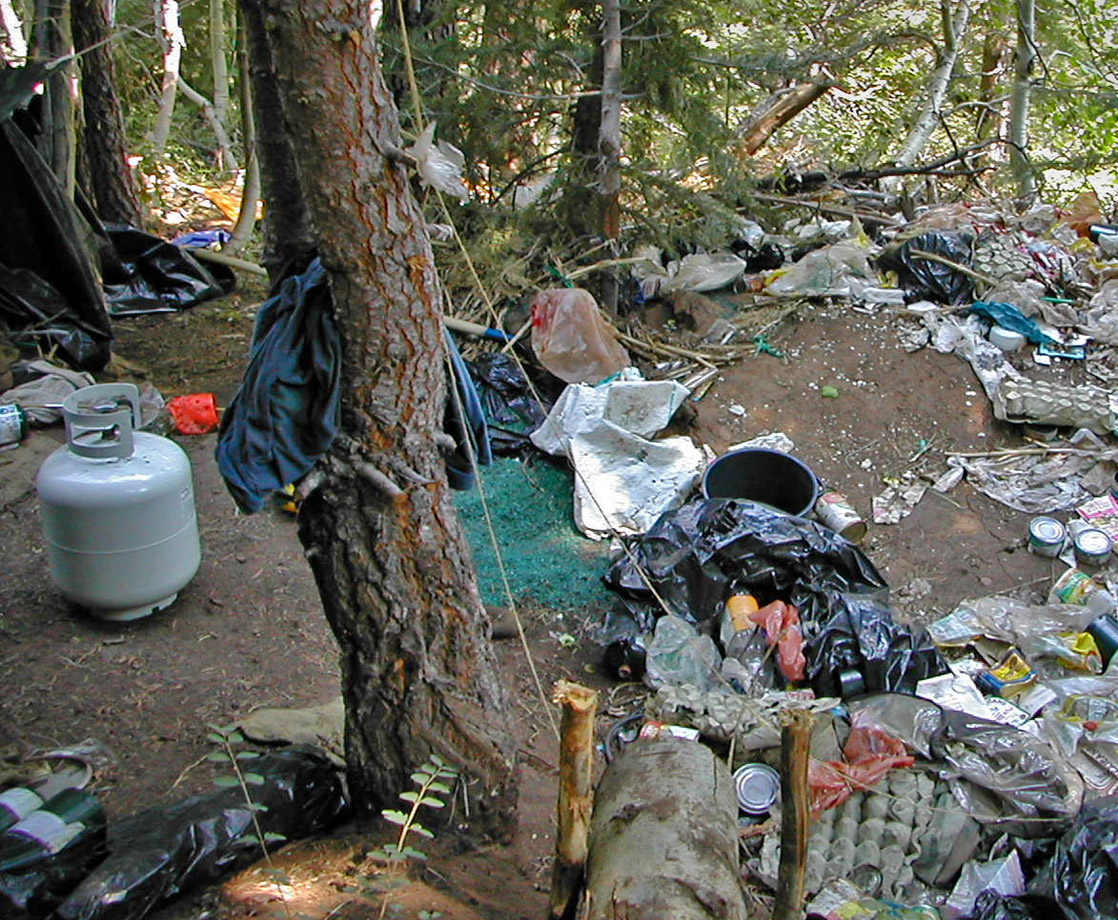Medical marijuana has been Valerie Corral’s passion for over 40 years. It all started after she experienced a traumatic car accident in 1972 that left her suffering from five grand mal seizures a day. The pharmaceuticals she was prescribed diminished her quality of life. But at the end of the decade, she read a study about cannabis controlling seizures in rats. Desperate to feel better, she started smoking low doses of cannabis to see if it helped. And it did. It not only stopped the seizures, but she hasn’t had a full-blown grand mal since.
That’s when she realized the cannabis plant was so much more than the Reefer Madness drug that the government touted it to be. Her personal experience in the early ’70s eventually led her to become one of the leading figures in the medical marijuana movement. In 1993, along with her then husband Mike Corral, she opened Wo/Men’s Alliance for Medical Marijuana (WAMM) in Santa Cruz, where the collective’s patients (made up of terminally-ill or low-income people) received cannabis on a sliding scale or free of cost in exchange for volunteer work. Corral’s understanding of the compassionate spirit of cannabis led her to help pen Proposition 215, the Compassionate Use Act, that made the use of medical marijuana legal in California in 1995.
But, everything changed on January 1, 2018 — the day adult-use cannabis hit the California market. The regulatory framework of the Medical Adult-Use Cannabis Regulatory and Safety Act (MAUCRSA) made no provisions for “compassionate care” — the spirit in which the cannabis movement was founded — effectively halting WAMM’s services. Faced with exorbitant new taxes, even on cannabis provided for free to its neediest members, WAMM’s model became financially unfeasible.
“It’s darkly ironic that after being at the forefront of the cannabis movement for decades, including facing a DEA raid in 2002 and the threat of ten years in prison, it was legalization that closed WAMM’s doors,” said Corral in a press release. “But we never stopped pushing back — along with our many allies in the community. And now that the laws have changed to once again allow compassionate giving, we’re pioneering a new, holistic way to offer phytotherapeutic and alternative care.”
On March 1, SB 34, the Dennis Peron and Brownie Mary Act — signed into law by Governor Newsom last summer — took effect, restoring the ability of legal cannabis suppliers to provide free medical marijuana to those otherwise unable to afford it without paying taxes on that cannabis as if it was sold at market rate.
In true Valerie Corral fashion, she and the team at WAMM Phytotherapies — officially the nation’s oldest medical cannabis collective — celebrated this past weekend by handing out free and low-cost medical cannabis to low-income patients in need. We caught up with Corral after a successful launch and rebranding of WAMM, which now goes by WAMM Phytotherapies, to chat more about this legislative milestone, her life, and the current state of our industry.
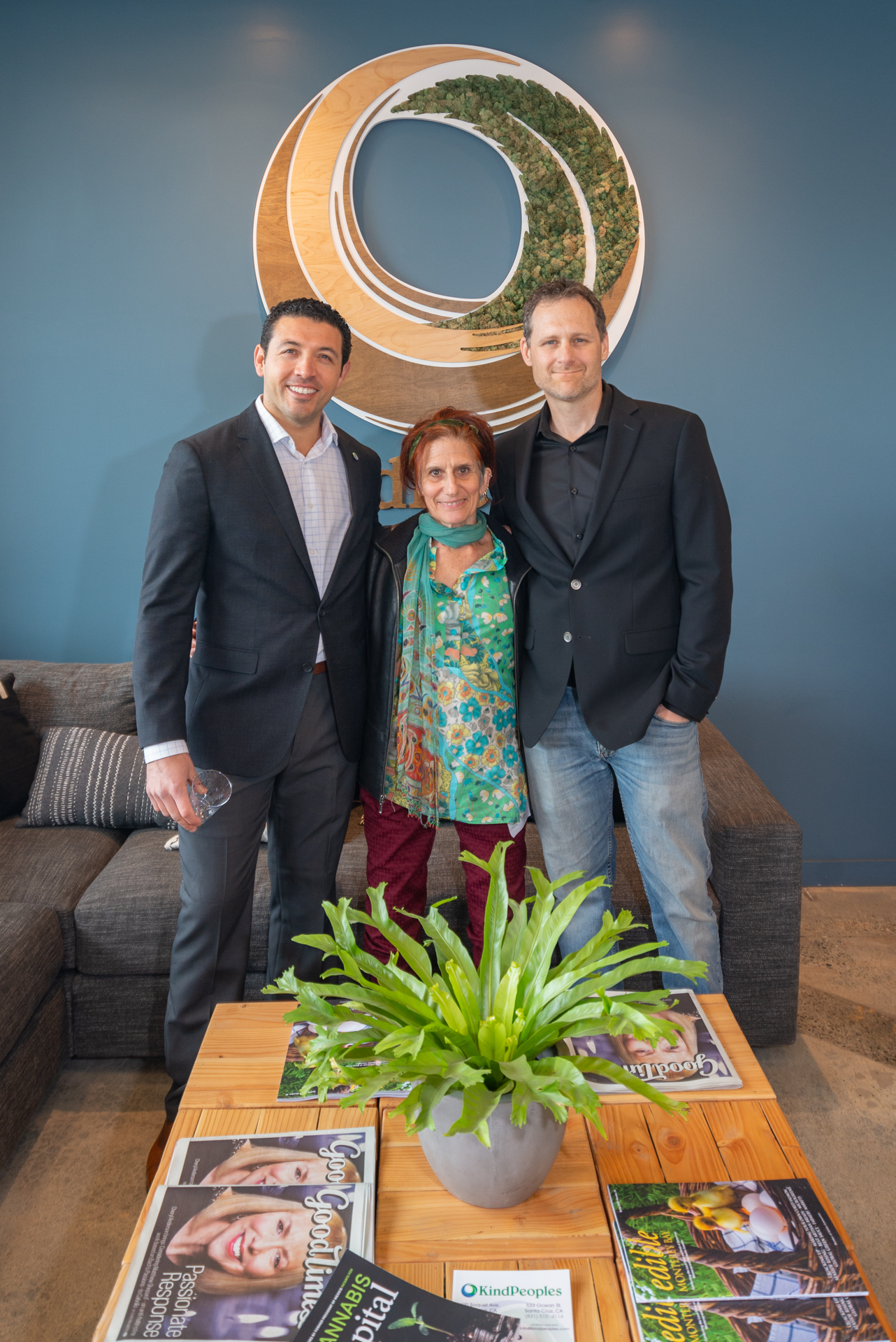
Valerie Corral pictured in the center. Photo by Adam Sanchez, courtesy of KindPeoples Dispensary
MERRY JANE: First, I’d like to say thank you, not only for taking the time to speak with us, but for everything you’ve done for the cannabis community. Let’s take it back to the 1970’s, especially for our readers who may be unfamiliar with your story. In 1972, you were in a serious car accident that left you epileptic as a result. What can you tell us about that day and your relationship with cannabis after the accident?
Valerie Corral: Thank you for leading in with that. It’s taken so many people, more than a village, to create this movement. For me, cannabis was a way to find an alternative to reducing seizures and the epic [bodily] prison the seizure activity had caused. I’ve said it for decades, between the seizures and the pharmaceuticals, it felt like I was living underwater. Taking those drugs has a profound impact on your mental state and clarity. Cannabis was a relief from seizures and the intense stupor. It felt like I was being set free — it was phenomenal.
Nowadays (depending on your location), adults have the convenience and luxury of going into a dispensary to purchase cannabis hassle-free. What was it like procuring cannabis in the 1970’s, ‘80s and early ‘90s, prior to Prop. 215?
You know, in the ‘70s, it wasn’t so bad because it was before zero tolerance. We lived very remotely, so it was always pretty easy for us to grow cannabis. At the time, almost 50 years ago, it wasn’t that clear to officials what cannabis was either. You didn’t have helicopters overhead or anything like that. After the ‘70s, zero tolerance became prevalent, and things began to change. It became more difficult. But even those times when we did have to confront cops or sheriffs up until the 1990’s, most of them understood and believed that we were growing it for medicinal purposes and would let us go.
In 1992, you were arrested alongside your then-husband Mike Corral for the cultivation of cannabis. You were also the first California patient to fight against the existing law, and from this incident the Wo/Men’s Alliance for Medical Marijuana was born. What can you tell us about this chain of events?
It’s interesting. Governments make revolutionaries. All social justice issues that have come to be laws in the past 70 or 80 years have occurred as the result of social justice movements. It’s all been grassroots-motivated. You start to wonder what the government could accomplish if its intent was always to serve the people first. It was intense and scary facing 30 men in suits, but we knew it was important for us to share our stories while we had their attention. We’d been talking about creating a hospice for a while, and this was our chance to implement it.
In addition to WAMM, you played a huge role in the development and passage of Prop. 215, a.k.a the Compassionate Use Act of 1996. What did its passing mean to you and the community at the time?
It was a great night, especially after many late nights working on it. A lot of people were involved in bringing Prop. 215 to life. Moving forward with medical cannabis really grew out of the gay movement happening in San Francisco. People with great courage who’d been through so much already having the strength to face more potential harm in order to bring it forward. There were many of us working together to make this happen. A lot of the old-school players like Dennis Peron, who unfortunately is no longer with us, and many of the others who are still present and working towards the goal of service. It was important to us that cultivation be a part of the legislation. Without cultivation, you have to purchase your cannabis from somebody else. And for a lot of patients, that’s not feasible. We always felt that if myself or the patients couldn’t grow our own medicine, it would create a retail industry that holds everybody hostage.
What do you remember about the other female cannabis advocates at the time?
Brownie Mary was such a huge person. She did her work in San Francisco, and I did mine in Santa Cruz. I worked closely with Jo Daly, who was San Francisco’s first lesbian police commissioner and one of our founding board members. She was an amazing character who also consumed cannabis medicinally. Unfortunately, Jo was pretty sick. She actually got married to her partner in Dianne Feinstein’s backyard when Dianne was trying to be hip and cool.
What’s your opinion of the cannabis industry since the passing of Prop. 64?
It’s disturbing. It’s disturbing when billionaires write laws. It’s disturbing when billionaires become President. It’s disturbing when billionaires buy everything on the planet and sell it to you. It’s disturbing because these people have no understanding of great need; there’s nothing within their realm that they can’t buy or have. There’s no direct experience with that kind of human suffering, so it’s misaligned. I ask every politician, or anyone really, to join someone else’s bedside that’s suffering. You can learn a great deal from it.
There are some good things that came from Prop. 64, like less racial profiling and people being released from jail. As well as the ability for women and POC to start businesses and be supported through equity grants. But, without the money to afford the kind of oversight of compliance that it takes, which is extremely complex, it can be a recipe for complete and utter financial failure. Essentially, you can take people who’ve been marginalized and push them even further. It’s the unintentional consequence of Prop. 64, and there’s all kinds of problems affecting small businesses.
Cannabis became an industry, and when that happened, it became a marketplace that was no longer defined in the wild west of cannabis. We could’ve put in our own regulatory body — a unified group of cannabis providers, growers, and consumers. We could’ve all joined together to make a remarkable law and system of governance but there was so much competition, when in reality, we’re not each other’s competition. Monsanto is our competition. Big Tobacco and alcohol companies are our competition. GW Pharmaceuticals is another one. It’s the big money that slides in through the back door and sucks out the blood like a tick. Capitalism is a flawed system because it only measures profit monetarily and equates that with power. But there’s a sense of power that comes when people are freed from suffering — that’s real equity. If we can create a sense of equity around relieving suffering, that’s profit.
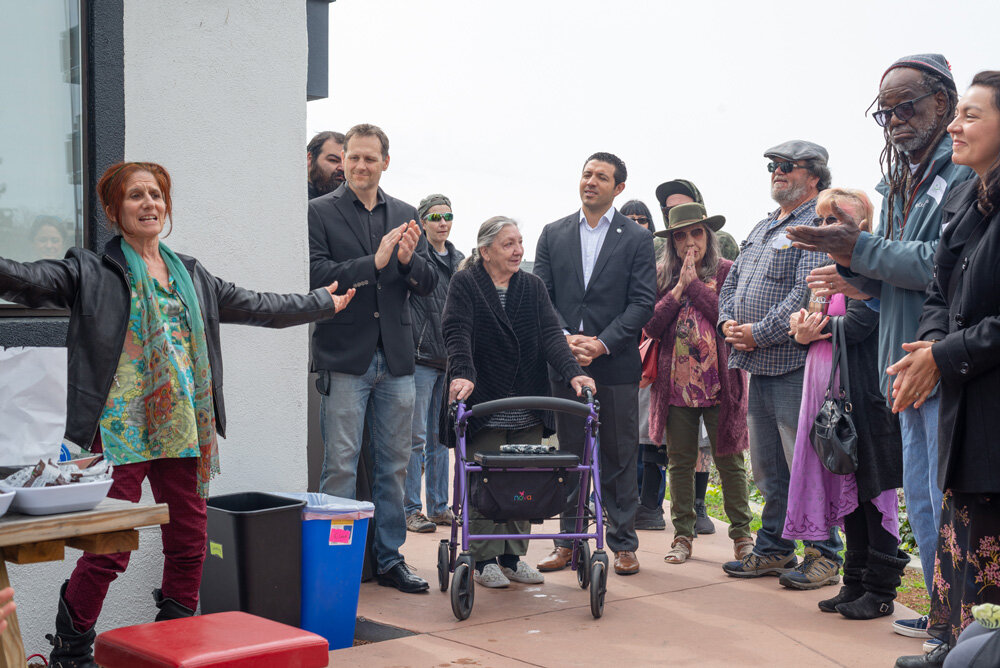
Photo by Adam Sanchez, courtesy of KindPeoples Dispensary
What advice do you have for cannabis advocates who wish to make a difference and who want to see legislation shift around cannabis?
It’s really about getting involved and speaking with legislators. Talk to the Bureau of Cannabis Control. Go to the Department of Justice, go to the Department of Health, speak with the Director of Government Affairs, have conversations with politicians and with anyone else who’s going to have to show up when it’s legal to regulate cannabis because that’s their job.
Patients got forgotten here [in California]. All the cannabis legalization in the world doesn’t do much good if you can’t afford to access it. It also doesn’t do much good if there’s no protection against higher taxation. In order to be able to really serve the people and not exclude them, meaning for it not to become an exclusionary law, everyone needs to be represented. Set up advisory boards. Don’t let rich people make laws for you. You can ask them to pay for it, but when they pay for it, then they want to control it. Not always, but that’s often the case. You shouldn’t allow billionaires to speak on your behalf because they have no idea what you’re going through.
I love that Sean Parker [from Napster] was willing to put out so much money towards legalization, that was really great. I don’t think the intention was to make a mess. I don’t believe he paid to repress people. I think he paid to free the plant. I honestly believe he wanted to do a good thing, and for him it was very clever. But the dude also started Napster. I used Napster a couple of times and went ‘Oh fuck, I can’t do that’ because I know people who are struggling muscians making immense sacrificies trying to make a living from their work…. My dad used to say “a mistake is a great tool,” and I believe that. We all have the opportunity to learn from this situation and move forward. There has to be a moral compass to everything you do.
SB 34 or the “Dennis Peron and Brownie Mary Act” went into effect on March 1st, 2020, essentially restoring the ability for legal cannabis suppliers to provide free medical cannabis to those otherwise unable to afford it without paying taxes on that cannabis as if it was sold at market rate. The WAMM Phytotherapies’ event at KindPeoples in Santa Cruz was a celebration of its passing. How was the event, and why KindPeoples dispensary?
We’ve been after everyone in our community to help us for the last two years, but there were obstacles for dispensaries, too. I can’t judge them, and it’s not up to me to judge those obstacles either. You really don’t have your finger on the pulse of dealing with human suffering and the relief and goodness cannabis brings to people’s lives unless you’re hands on. This past Sunday [KindPeoples] got to be hands-on with us.
That day was remarkable for us all. It was great for our members who haven’t had their medicine in two years and who’ve never been inside a dispensary because they couldn’t afford it. There were individuals there that have been WAMM members for over 20 years. You see, cannabis is a great thing because it helps you feel better. Besides helping you feel better, cannabis also changes your consciousness. It alters the way we think and unlocks the door to many new things, including a different mindset. It doesn’t happen for everybody but many WAMM members have told me how cannabis opened new portals for them.
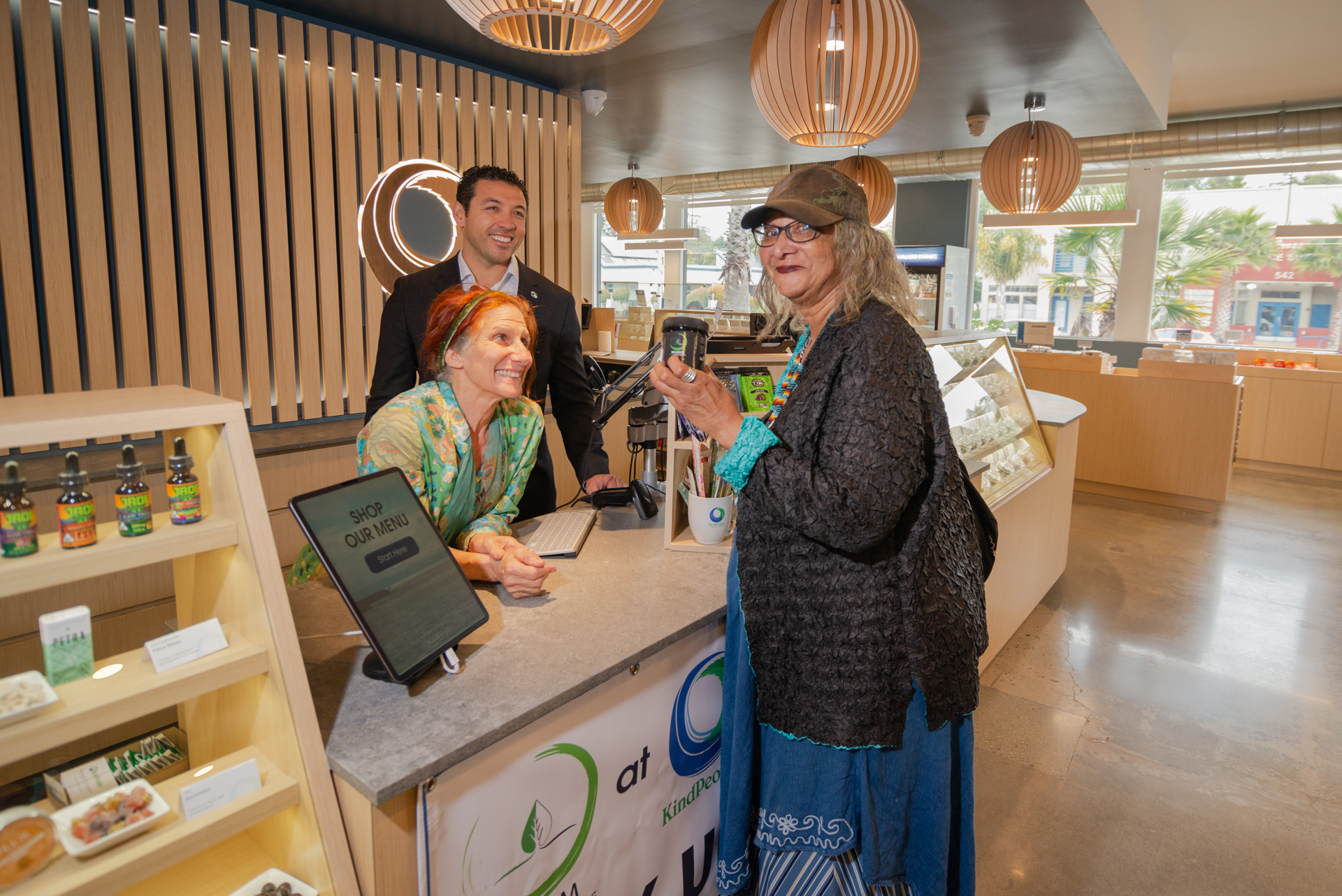
Photo by Adam Sanchez, courtesy of KindPeoples Dispensary
What can you tell us about the reincarnation of WAMM as WAMM Phytotherapies?
WAMM Phytotherapies is really the bigger picture of healing. We know that cannabis isn’t the single healer — it takes many things to heal. With WAMM Phytotherapies, we’re bringing in a plethora of private plant therapy, which we’ve done before, only now we’re talking about it aloud. We’re growing that aspect. We’re also talking more about the different kinds of applications. It’s a new kind of evolution of services that’s focused on compassionate access and care. We don’t have a dispensary because we can’t really afford to open one, so it’s putting our energy towards the services and doing it through dispensaries like KindPeoples. We need to be able to speak to people on a one-to-one basis to help them find their best path, not only with their use of cannabis but all medicines.
Speaking of rebranding, what’s your opinion on the cannabis industry positioning itself towards women and hiring more females in general?
Well, they have to now, don’t they? Hah! In order to survive today’s market as a business, you have to have equity in your hiring. Cannabis companies are becoming more inclusive because they have to be. It used to be the guys were the ones selling the cannabis, and the females were the ones administering the medicine at the dying patient’s bedside. As females, we’re the ones having more of the humane experiences. There’s this concept of care, and women are an elemental force in that experience.
What would you like to see change within the cannabis industry?
I’m pushing that it’s necessary for cannabis businesses to include philanthropy and compassion into their models because we’re not there yet. There’s no room for small business, either. That’s because it [Prop. 64] was written by a billionaire to make more billionaires. Trust me, the people who aren’t being served are the patients.
For more on Valerie Corral and WAMM, visit their Facebook page here


